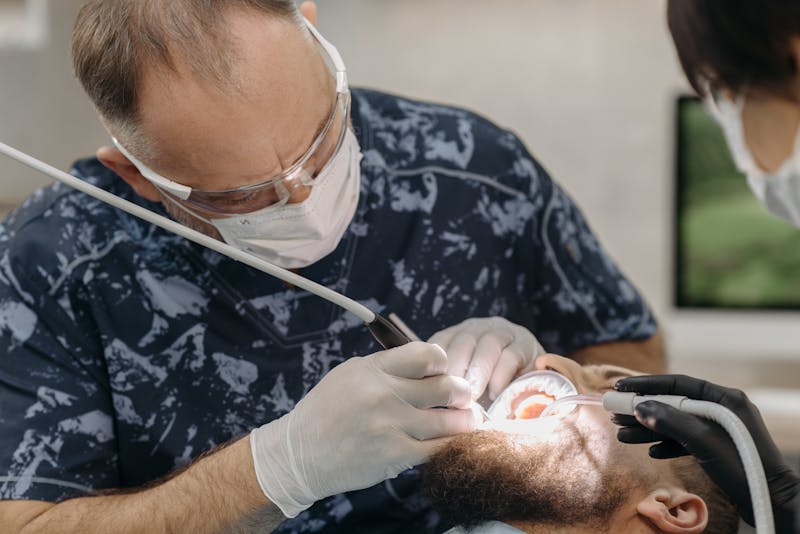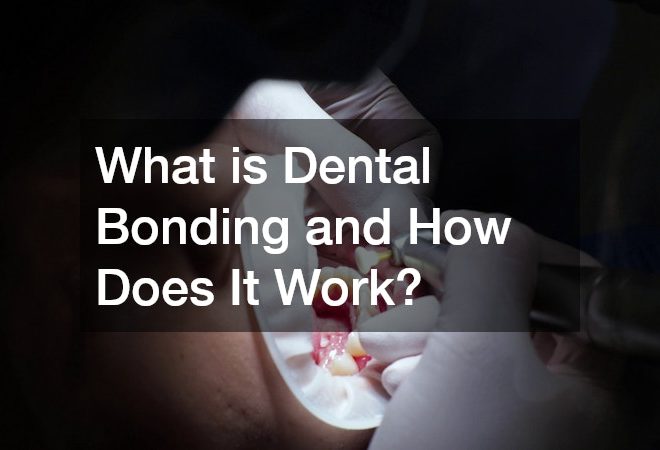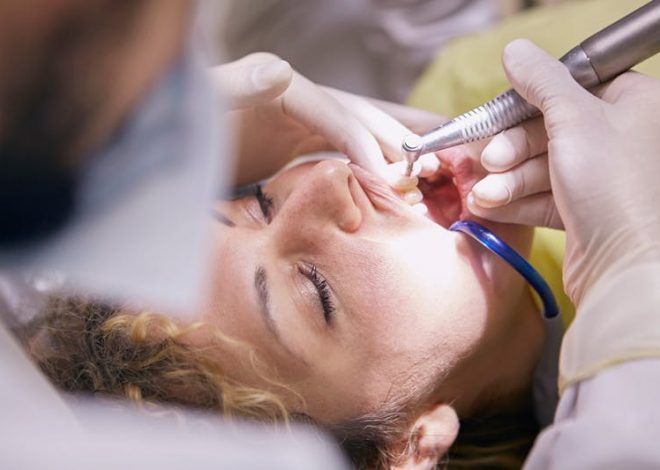
Post-Procedure Dental Care Tips: How to Recover After a Deep Dental Cleaning

A deep dental cleaning is a vital treatment for patients with gum disease or heavy plaque buildup below the gum line. Unlike a routine cleaning, this procedure goes further to remove bacteria, tartar, and debris from areas that regular brushing and flossing cannot reach. While this treatment can significantly improve oral health, recovery plays a major role in its effectiveness.
In this article, we’ll guide you through the best post-procedure dental care tips to help you recover quickly and comfortably. From managing pain and bleeding to eating the right foods and avoiding common mistakes, we’ve got you covered with expert-backed advice to protect your gums and promote healing.
What Is a Deep Dental Cleaning and Why Is Aftercare Important?
Deep dental cleaning, also known as scaling and root planing, is often recommended for patients with early-stage periodontal disease. The procedure involves cleaning beneath the gumline to remove plaque and tartar buildup on tooth roots, followed by smoothing the root surfaces to discourage further bacterial accumulation.
Aftercare is essential because your gums may be sensitive, inflamed, or even bleeding post-procedure. Proper care not only reduces discomfort but also prevents complications such as infections, gum recession, or relapse of gum disease. Without intentional recovery efforts, the benefits of the treatment may be compromised.
What Should You Expect Immediately After the Procedure?
The effects of a deep dental cleaning are often immediate in terms of freshness and cleanliness, but the healing process takes time. Here’s what you may experience:
- Tender gums: Mild pain or discomfort for 24–48 hours.
- Bleeding: Especially when brushing or flossing in the first few days.
- Swelling or inflammation: Gums may look puffy or red.
- Tooth sensitivity: Hot, cold, or sweet foods may cause discomfort.
- Metallic taste or bad breath: A side effect of bleeding or medicated rinses.
These side effects are generally temporary and subside with proper care and hygiene.
How to Manage Pain and Discomfort After Deep Cleaning
- Some tenderness or mild pain is expected after a deep dental cleaning, especially around the gums. Fortunately, there are several effective ways to ease the discomfort and support healing during the first few days.
-
1. Use Non-Prescription Pain Relief
- To manage soreness, consider taking over-the-counter medications like acetaminophen or ibuprofen. These can reduce both pain and inflammation. Always read the label for proper dosage and check with your dentist or doctor if you have any medical conditions or take other medications.
-
2. Soothe the Area with a Cold Compress
- Applying an ice pack or a chilled towel to the outside of your face near the treated area can help numb the discomfort. Do this in intervals of 10 to 15 minutes, giving your skin time to rest between applications to avoid irritation.
-
3. Watch What You Eat
- During the first 24 to 48 hours, it’s best to steer clear of hot or spicy foods, which can aggravate sensitive gums. Opt for cooler, soft-textured meals that are gentle on your mouth, like yogurt, smoothies, or mashed vegetables.
-
4. Brush with Care
- Continue your oral hygiene routine, but use a soft-bristled toothbrush and gentle strokes. Brushing too hard can disrupt the healing gums or cause bleeding, so aim to be thorough yet delicate.
What Foods Are Safe to Eat After a Deep Dental Cleaning?

Your gums will be more sensitive than usual, so it’s important to stick to soft, non-irritating foods. Proper nutrition also helps with faster healing.
Recommended Foods:
- Yogurt: Soothing and rich in probiotics.
- Mashed potatoes: Filling and easy on the gums.
- Smoothies: Nutrient-dense and customizable.
- Soup (lukewarm): Avoid hot broth, but opt for vegetable or chicken soup.
- Scrambled eggs: High in protein and soft in texture.
- Steamed vegetables: Easy to chew and full of vitamins.
Foods to Avoid:
- Crunchy snacks like chips or popcorn.
- Sticky candies or chewy meats.
- Spicy foods that can irritate your gums.
- Acidic beverages like soda and citrus juice.
- Alcohol and smoking, which delay healing.
How to Maintain Oral Hygiene After a Deep Dental Cleaning
Keeping your mouth clean after the procedure is essential to promote healing and avoid reinfection. However, it must be done gently and correctly.
1. Brush Gently Twice Daily
- Use a soft-bristled brush.
- Angle the brush at 45 degrees to the gumline and make circular motions.
- Don’t scrub aggressively; it can damage tender tissues.
2. Floss Carefully
- You can resume flossing after 24–48 hours.
- Be gentle and avoid snapping the floss into the gum pocket.
- If flossing causes bleeding, reduce pressure or wait another day.
3. Rinse with Saltwater
- Mix 1/2 teaspoon of salt in a glass of warm water.
- Rinse your mouth gently 2–3 times a day to reduce bacteria and inflammation.
4. Avoid Commercial Mouthwash Initially
- Many store-bought mouthwashes contain alcohol, which can cause stinging or dryness.
- Your dentist may prescribe an antibacterial rinse like chlorhexidine instead.
How Long Does It Take to Heal After a Deep Dental Cleaning?
Healing time depends on your overall oral health and how well you follow post-procedure care instructions. Most patients experience:
- Initial discomfort: Subsides in 1–3 days.
- Reduced gum inflammation: Within a week.
- Improved gum attachment: Over 4–6 weeks with proper oral hygiene.
- Full recovery: May take up to 2 months if you had significant gum disease.
Your dentist may schedule a follow-up visit to evaluate your healing progress and assess if further treatment is needed.
When Should You Contact Your Dentist?
Mild discomfort is normal, but certain symptoms could indicate complications. Contact your dentist immediately if you experience:
- Excessive bleeding that lasts more than 48 hours.
- Severe pain that doesn’t improve with OTC painkillers.
- Pus, bad taste, or swelling that worsens.
- Signs of infection such as fever, chills, or persistent bad breath.
- Loose teeth or worsening gum recession.
Prompt action can prevent minor issues from turning into serious complications.
Dental Care Tips: Deep Dental Cleaning Procedure Recovery Mistakes to Avoid
To ensure a smooth recovery, it’s crucial to avoid habits that may delay healing or cause reinfection.
1. Skipping Oral Hygiene
Even if your gums are sore, failing to clean your mouth can worsen the problem. Keep up with brushing and rinsing as directed.
2. Smoking and Alcohol Consumption
Tobacco and alcohol interfere with gum healing and increase infection risk. Avoid them for at least 72 hours—or longer, if possible.
3. Ignoring Follow-Up Visits
Deep dental cleanings are often part of a broader treatment plan. Follow-up appointments allow your dentist to monitor healing and prevent future issues.
4. Returning to Hard or Crunchy Foods Too Soon
This can cause trauma to healing gum tissues. Wait until your dentist confirms it’s safe to resume your normal diet.
5. Self-Medicating Without Professional Advice
Only take medications or use dental rinses recommended by your dentist. Avoid DIY treatments or unverified online remedies.
How to Prevent the Need for Another Deep Dental Cleaning
Once you’ve recovered, the goal is to maintain your oral health and prevent gum disease from returning. Here are some long-term tips:
1. Brush and Floss Daily
- Brush for at least 2 minutes twice a day.
- Floss once daily to remove debris and prevent tartar buildup.
2. Schedule Regular Dental Visits
- Routine cleanings every 6 months (or as recommended) help prevent plaque from accumulating below the gumline.
3. Use Antibacterial Mouthwash
- Once your gums have healed, incorporating a non-alcohol-based mouthwash helps control harmful bacteria.
4. Eat a Balanced Diet
- Limit sugary snacks and acidic beverages.
- Focus on nutrient-rich foods that support oral and gum health.
5. Stay Hydrated
- Drinking water helps wash away bacteria and food particles throughout the day.
How to Sleep Comfortably After a Deep Dental Cleaning

Sleep is critical for healing, especially after a deep dental cleaning, when your gums and teeth may be sore or inflamed. The way you sleep and what you avoid at bedtime can significantly impact your comfort and recovery.
Tips for a Restful Night Post-Procedure:
- Sleep with your head elevated using an extra pillow to reduce swelling and throbbing in the gums.
- Avoid sleeping on the treated side if one side of your mouth was cleaned more extensively.
- Don’t eat right before bed, especially hard or spicy foods that might irritate your gums.
- Use any prescribed or recommended mouth rinse before sleeping to reduce bacteria buildup overnight.
- Take over-the-counter pain medication 30 minutes before bed if advised by your dentist.
- Avoid alcohol or caffeine in the evening, as these can cause dehydration and disrupt sleep quality.
By following these tips, you’ll reduce discomfort and allow your body to heal more efficiently while you sleep. Prioritizing good sleep hygiene after dental procedures is often overlooked, but it’s an essential part of a successful recovery.
FAQs About Deep Dental Cleaning and Recovery
Q: Is deep cleaning painful?
You may feel discomfort during and after the procedure, but it’s usually managed with local anesthesia and OTC pain medication.
Q: How long do gums stay sore after a deep cleaning?
Typically, gum soreness lasts 1–3 days. If it continues beyond that, consult your dentist.
Q: Can I eat after a deep dental cleaning?
Yes, but stick to soft, non-irritating foods for at least 24 hours.
Q: Will I need another deep cleaning?
That depends on how well you maintain your oral hygiene. Regular cleanings and daily care help prevent the need for future deep cleanings.
Final Thoughts: Recovery Is Just as Important as the Procedure
A deep dental cleaning is an effective way to stop the progression of gum disease and restore oral health. But its long-term success depends on your commitment to post-procedure care. By following the tips in this guide—ranging from what to eat to how to brush—you’ll protect your gums, reduce your risk of infection, and enjoy a smoother, quicker recovery.
If you’re ever unsure about your symptoms or recovery timeline, don’t hesitate to reach out to your dentist. With proper care and vigilance, you can maintain a healthy, confident smile for years to come.


